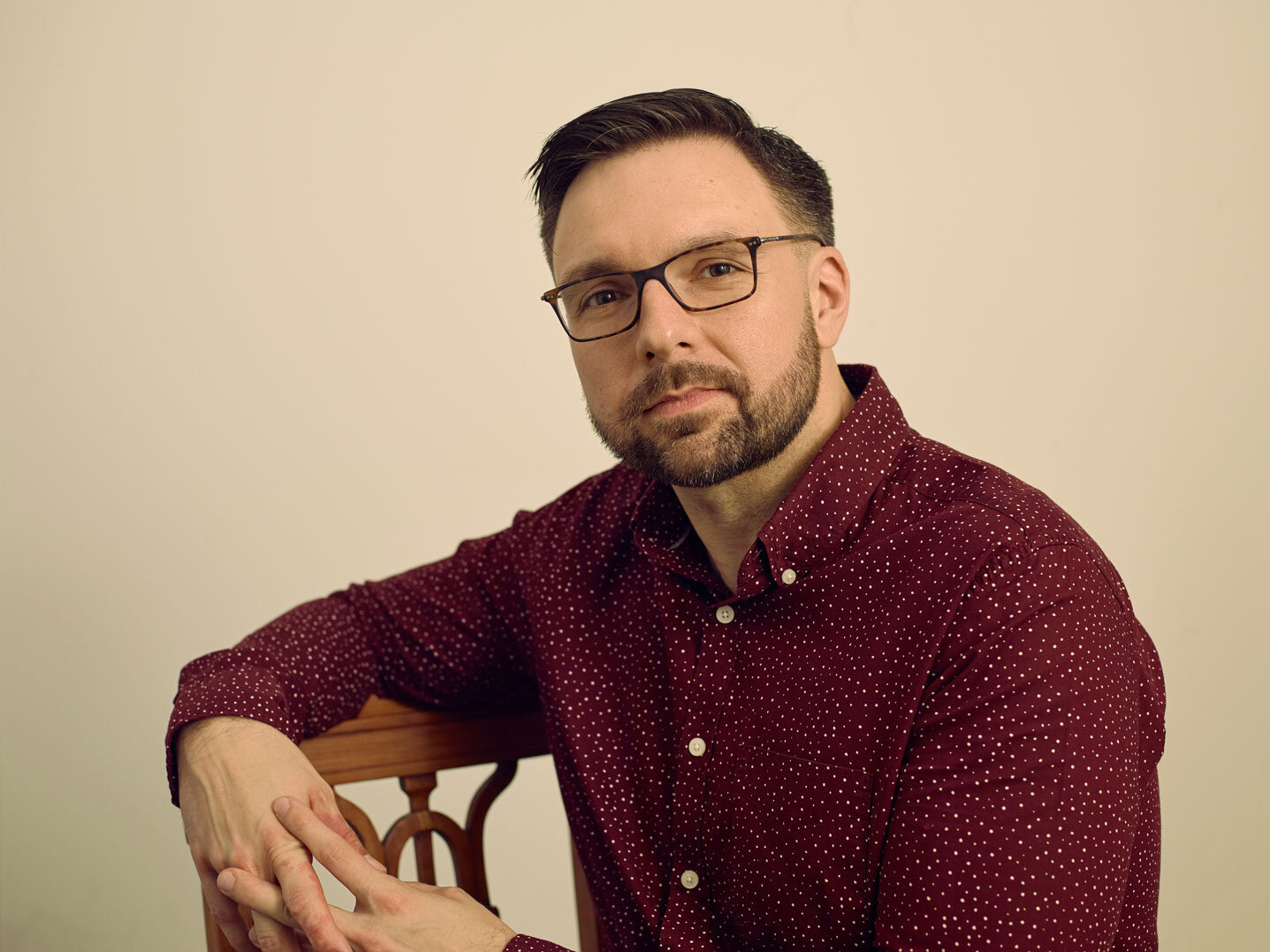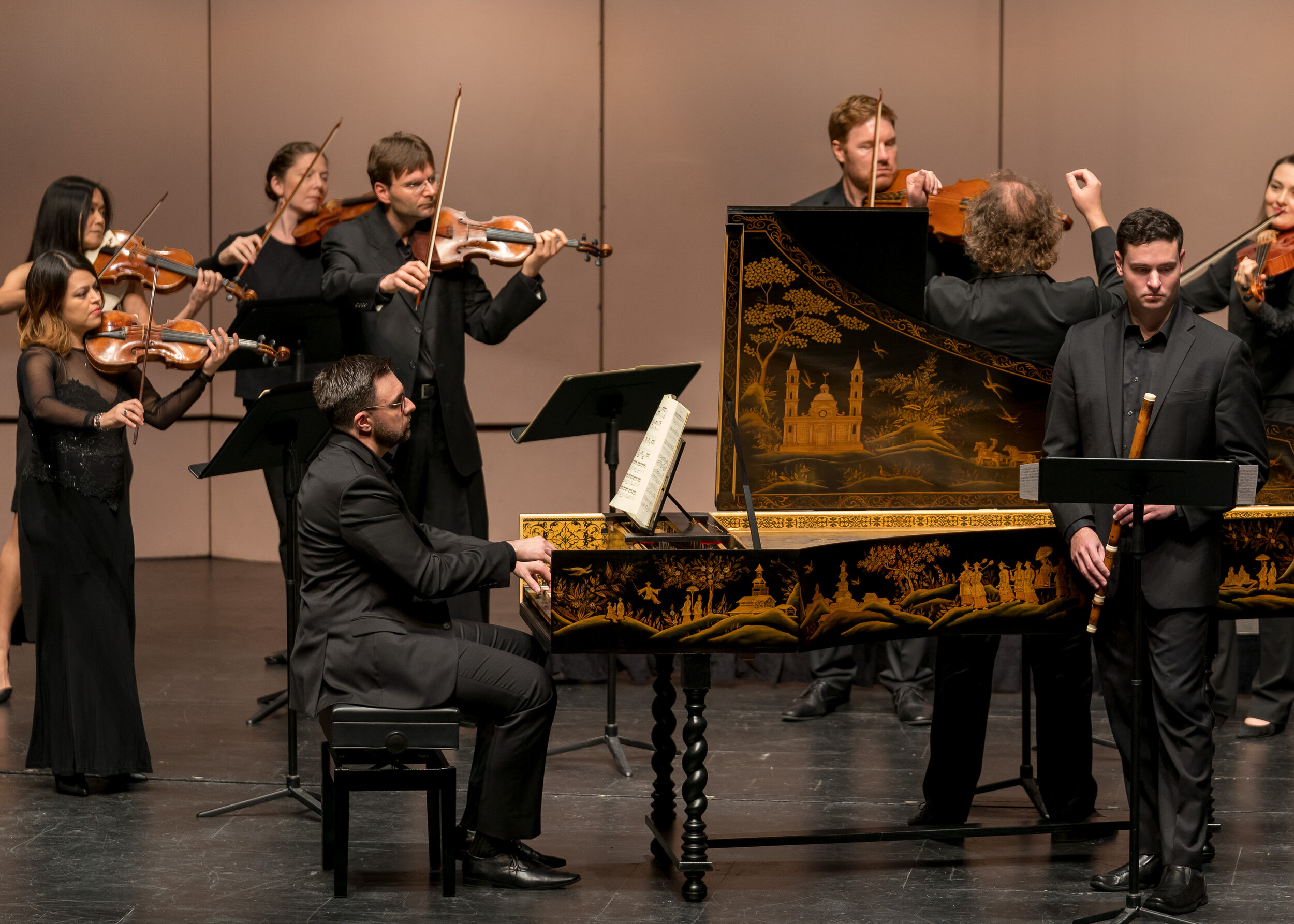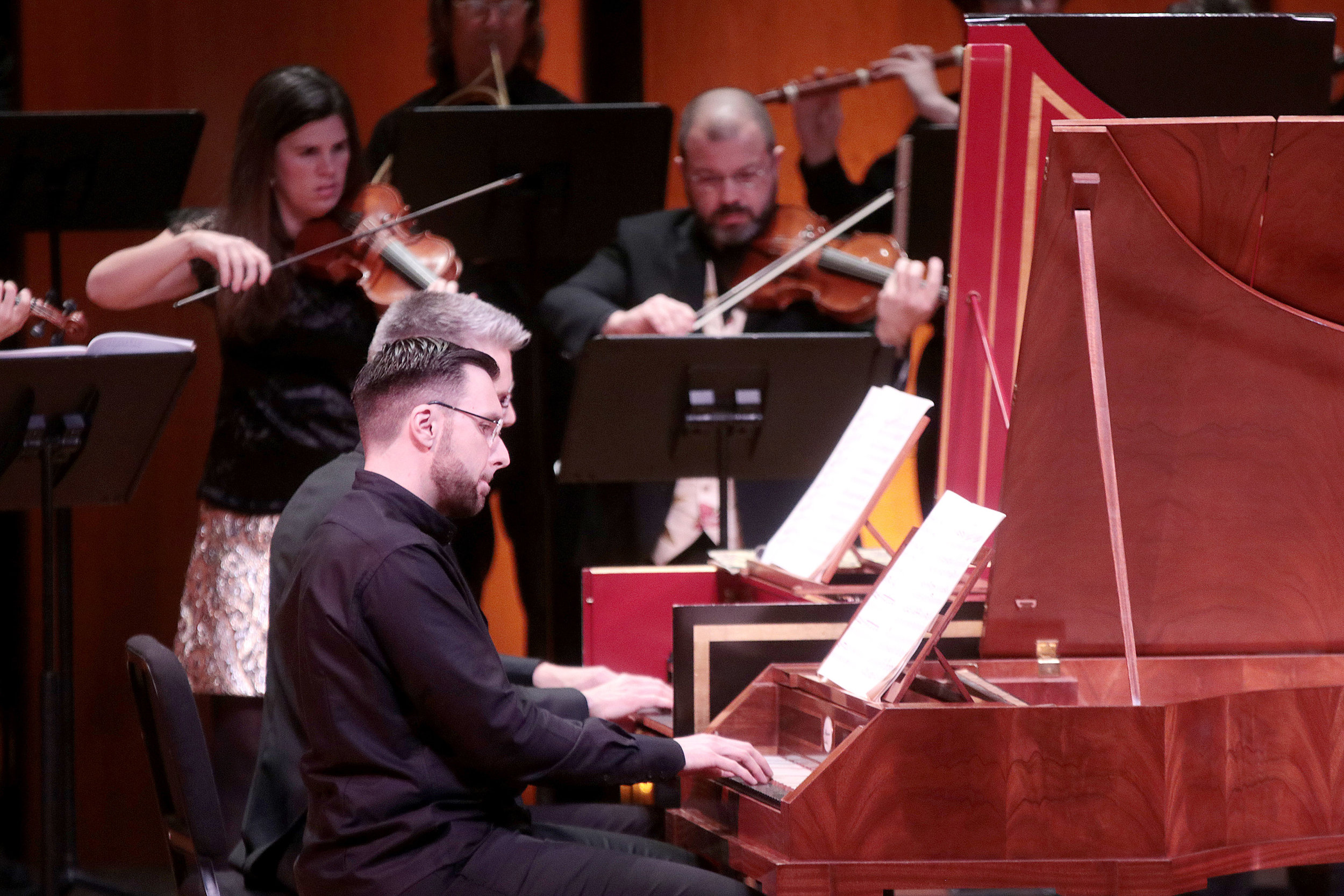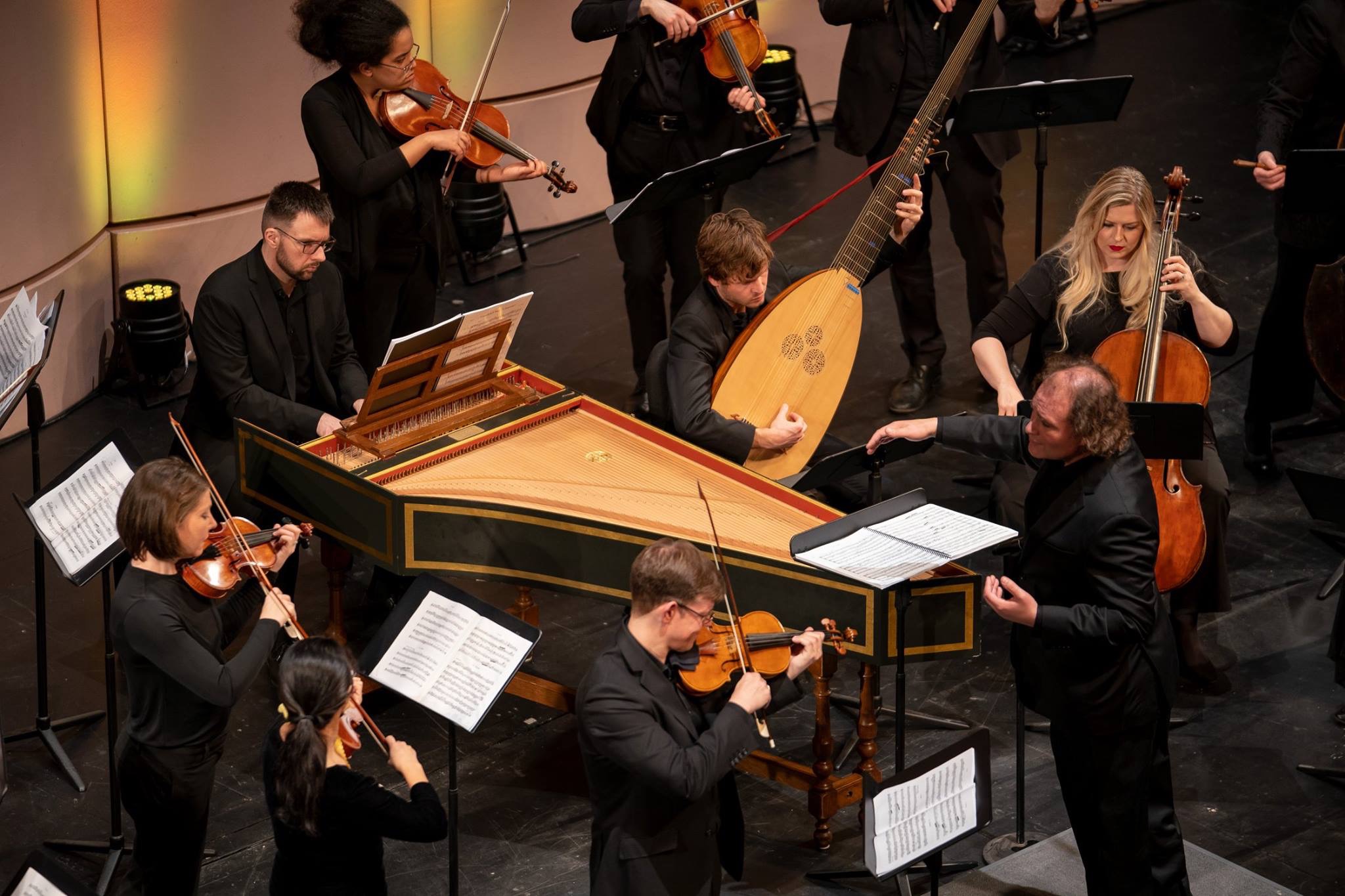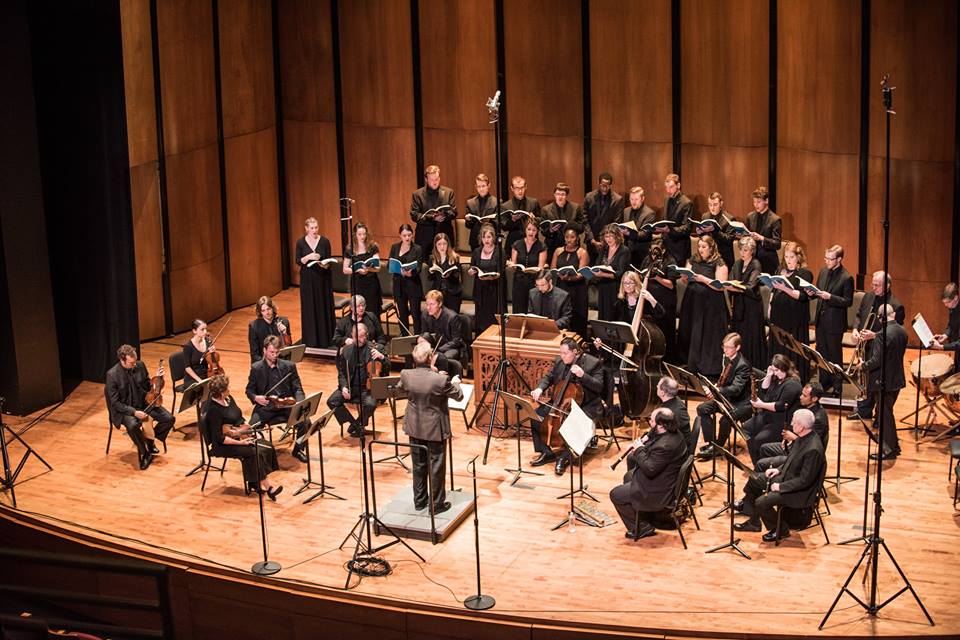Praised a performer with “unconventional ludic drive” by the press and listed among Austria's thirty-five most outstanding researchers aged under thirty-five by the Austrian Science Fund in 2013, Mario Aschauer works as conductor, harpsichordist, and musicologist at the interface of music scholarship and performance.
His book on German Keyboard Treatises in the Second Half of the Eighteenth Century (Kassel: Bärenreiter, 2011) is considered a standard reference in the field. Further projects in early keyboard studies include the development of historical-style keyboard fingerings and notes on performance practice for new editions of prominent works by Beethoven and Schubert as well as a new edition of Mozart's keyboard sonatas published by Bärenreiter.
As a performer on historical keyboard instruments Mario has built up a diverse repertoire specializing in Austrian Baroque music. He is member of the Calamus-Consort, which won first prize at the International H.I.F. Biber Competetion in 2009 and since then has been invited to numerous renowned early music festivals such as Resonanzen Wien, Bach Fest Leipzig (Germany), and Itinéraire Baroque en Périgord Vert (France). Their CD “Un dolce affanno” (Passacaille, 2012) features highlights from operas performed at the Vienna court around 1700 with chalumeau, clarinet, and harpsichord as solo instruments.
Having earned a degree in conducting from the Linz Bruckner Conservatory at the young age of seventeen, Mario had already conducted major works from the choral and symphonic canon before he graduated from high school. Shortly thereafter Mario began to specialize in the music of the late eighteenth century performed on period instruments with his Ensemble NovAntique Linz. Their repertoire is typically beyond the standard and includes large-scale sacred and symphonic works and oratorios by composers such as Gassmann, Gossec, Kraus, Salieri and Wagenseil. In addition, Mario also collaborates with other early music ensembles such as Progetto Semiserio Vienna, Harmony of Nations Baroque Orchestra, Ars Antiqua Austria, and L'Orfeo Baroque Orchestra, Ars Lyrica Houston, Houston Bach Society, and Mercury Houston.
Mario has edited Schubert's opera fragment Adrast, D. 137, for the New Schubert Edition and gave it its world premiere in Vienna in 2010. The recording of the concert was broadcast on BBC Radio and won the “Pasticcio Prize” from the Austrian Broadcasting Corporation (ORF). Mario's current research for a new book on Anton Bruckner's creative process was selected for prestigious fellowships from the Austrian Science Fund and the Max Kade Foundation, Inc. (New York). The project also entails a recording of selections from Bruckner's sketches on a mid-19th-century fortepiano similar to the composer's own instrument. Mario is member of the advisory boards of the New Bruckner Complete Edition (Vienna) and the Anton Bruckner Institut Linz.
As Associate Professor of Music Mario teaches music history, historically informed performance and early keyboard instruments at the Sam Houston State University School of Music (Huntsville, TX). He holds an MA in harpsichord performance from the University of Music and Performing Arts, Vienna, an MPhil and a PhD in musicology from the University of Vienna—all of which he earned “with distinction”—as well as a degree in conducting from the Linz Bruckner Conservatory. He has since returned to teach at these institutions. Between 2008 and 2014 Mario held a position as researcher at the Austrian Academy of Sciences (Vienna). In 2012/13 he was a postdoctoral fellow and visiting guest lecturer at the Yale School of Music.
